#ALL HAIL GRETA GERWIG
Text
barbie girl 🩷


35 notes
·
View notes
Text
Can we all take a moment of silence for that one Ken who was trying to revive his stick horse via mouth to mouth? I hope it made it.
22 notes
·
View notes
Text
im pretty sure this is not a popular opinion which is why i havent said it, but its been on my mind for months now so fuck it, i guess.
you know that post, the one about the barbie movie and margot robbie talking about barbie being a doll with no reproductive organs and sexual desire, and a lot of tumblr users just like, celebrating this as a win for asexuality?
i hate that post. a lot. like a lot a lot.
because while i dont think margot robbies conclusion is wrong (shes a doll), i think calling barbie asexual is inaccurate and it makes me, an ace person, uncomfortable.
like i dont think its a purposeful link, but that comparison very much implies that sexuality and sexual desire is tied to having reproductive organs, which uh no, thats not how that works and i really dislike that implication. idk about you, but i dont like tying my queerness to my biology.
that link is also one that rings of those who presume that there is a universal normative experience, which is also true of the movie itself, see jessie genders video on that. there are many people in the world who have what would be considered atypical reproductive organs and plenty whose reproductive organs can be considered not-working like those who have gone through the menopause, and they are not all ace.
its also just reductive as to what asexuality in general. margot robbies quote was specifically that barbie didnt feel sexual desire, and funnily enough, sexual desire =/= sexual attraction. while i, myself, be a sex-repulsed ace, there are plenty of horny aces who do the fuck. ive already mentioned the fact that im opposed to linking my queerness to biology, and honestly that part only made me more uncomfortable after the movie ended on "im here to see my gynecologist".
also just, barbie is a plastic doll. like thats how she starts in the movie itself. shes not asexual, shes a doll. and idk dude, theres just a part of me that is deeply uncomfortable with tying asexuality with a doll.
like imo, this just isnt the win for asexuality people were treating it as. we can do better than this.
especially considering the way queerness was handled in the film, but again, go watch jessie genders video on it, its better presented than my rambling post
#kai rambles#this has been on my mind for months#everytime i saw that post#i stayed quiet#i didnt say anything#i didnt want to ruin people's fun#which is how i treated all of the barbie movies because people were having fun i didnt want to ruin the fun#or come across as a contrarian#or put myself on the same side of all the sad men complaining about it being about men being evil#because like thats not my opinion but when those are the loudest voices criticising the film#you dont want to join in yourself because i also think their criticisms are dumb and bigoted#but i also think the movie was a vehicle for capitalism and that people are hailing greta gerwig for a middling film that is also an#advert for matel#and that its social commentary is woefully lacking because its just so fucking white#it is a white feminist movie#it is a cishet feminist movie#it does not address or even acknowledge intersectionality#and it is randomly (?) racist towards native americans#like the smallpox line and the uh funny haha barbie version of mount rushmore joke are uh#theyre unnecessary inclusions that show at the very least an ignorance towards native issues and experiences#also like its hard to make your fuck the patriarchy movie when capitalism is a fundamental part of the patriarchy and your movie is also an#also the movie itself links gender with reproductive organs which is not only cisnormative and like fucking#radfem bullshit#but also completely ignores the fact that intersex people exist#...i did not mean to go on a rant#i didnt even like particularly dislike the film i just fucking hated how it was being discussed
5 notes
·
View notes
Text





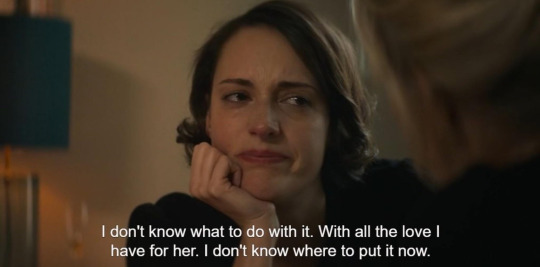

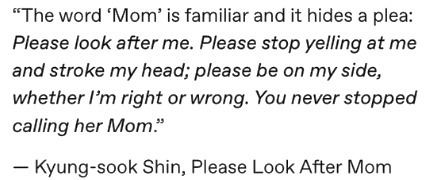



Jack Stauber Just Take My Wallet // Lady Bird (2017) dir. Greta Gerwig // Everything Everywhere All At Once (2022) dir. Daniel Kwan & Daniel Scheinert // Hannah Green Night Terrors // Veruca Salt All Hail Me // Fleabag (2016-2019) cr. Phoebe Waller-Bridge // Laurie Anderson O Superman (live) // Kyung-sook Shin Please Look After Mom // Ocean Vuong Someday I'll Love Ocean Vuong // Euphoria (2019-) cr. Sam Levinson // Ernest Hemingway The Garden of Eden
#i'm sorry mom you deserve better than me#on mothers#on self#on loneliness#on family#poetry compilation#web weave#web weaving#poetry parallels#jack stauber#lady bird#greta gerwig#everything everywhere all at once#eeaao#hannah green#veruca salt#fleabag#phoebe waller bridge#laurie anderson#kyung sook shin#ocean vuong#euphoria#sam levinson#ernest hemingway#spilled poetry#poetry#poem#spilled thoughts#writing#dark academia poetry
307 notes
·
View notes
Text
not to post about barbie movie but america ferrera’s speech at the end - while it has been hailed as a masterpiece in feminist writing by some - just fell so, so incredibly flat for me. i don’t know, but i think the whole “it’s so hard to be a woman! you have to be confident, but not too confident; thin, but not too thin; a working woman, but also a mother” etc. narrative kind of…doesn’t like, actually apply in real life? if you’re a celebrity, or a corporate worker, then yeah, sure, maybe. (though i think like, maybe a total of 1 person ever has been considered “too thin.”) but i don’t see this struggle of How To Be A Woman at all in my real life😭 and i don’t know, maybe the republican suburb i live in is secretly a feminist utopia, but i don’t see anyone making these demands of most women! or maybe i’m just a lesbian, so i’ve never felt the need to cater my whole existence toward what men feel about me - but then, would greta gerwig think i’m a woman?
31 notes
·
View notes
Text
"‘Barbie’ is bad. There, I said it." Thank god, someone I can agree with!
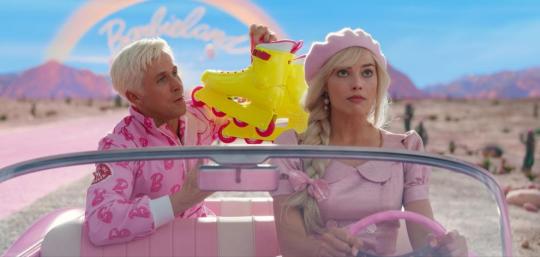
Opinion by Pamela Paul for the NYT, January 24, 2024.
We can all agree 2023 was a good year for the movies. Critically and commercially, several movies did well, and only one of those successes took place within the Marvel cinematic universe. Even the 10 Oscar nominees for best picture, announced Tuesday, included nine actually good films.
Is it safe now to call “Barbie” the outlier? Can I say that, despite winsome leads and likable elements, it didn’t cohere or accomplish anything interesting, without being written off as a) mean, b) old, c) hateful or d) humorless?
Every once in a while, a movie is so broadly anticipated, so welcomed, so celebrated that to disparage it felt like a deliberate provocation. After “Barbie” so buoyantly lifted box office figures, it also felt like a willful dismissal of the need to make Hollywood solvent after a season of hell. And it felt like a political statement. Disliking “Barbie” meant either dismissing the power of The Patriarchy or dismissing Modern Feminism. You were either anti-feminist or too feminist or just not the right kind.
Few dared rain on Barbie’s hot pink parade.
Those who openly hated it mostly did so for reasons having to do with what it “stood for.” They abhorred its (oddly anachronistic) third-wave feminist politics. They despised its commercialism and dreaded the prospect of future films about Mattel properties such as Barney and American Girl dolls. They hated the idea of a movie about a sexualized pinup-shaped doll whose toy laptop or Working Woman (“I really talk!”) packaging couldn’t hide the stereotypes under the outfit.
For those who hailed it, there was a manic quality to the “Barbie” enthusiasm, less an “I enjoyed” and more of an “I endorse.” How fabulous its consumer-friendly politics, its I-can’t-believe-they-let-us-do-this micro-subversions, its prepackaged combo of gentle satire and you-go-girl gumption. They loved it for reclaiming dolls and Bazooka-gum pink, its Rainbow Magic diversity, its smug assurance that everything contained within was legitimately feminist/female/fine. They approved of the fact that Weird Barbie’s quirks could X out Stereotypical Barbie’s perfection on some unspoken political balance sheet. That by being everything to everyone, a plastic doll could validate every child’s own unique and irrepressible individuality. To each her own Barbie!
And now there is a new Barbie cause to rally around: the Great Oscar Snub and what it all means — and why it is wrong. Neither Margot Robbie nor Greta Gerwig was nominated for best actress or best director, respectively. “How is that even possible?” one TV host exclaimed.
“To many, the snubbing of the pair further validated the film’s message about how difficult it can be for women to succeed in —<em> and be recognized for </em>— their contributions in a society saturated by sexism,” CNN explained. Ryan Gosling, nominated as best supporting actor for his role as Ken, issued a statement denouncing the snubs and hailing his colleagues.
But hold on. Didn’t another woman, Justine Triet, get nominated for best director (for “Anatomy of a Fall”)? As for “Barbie,” didn’t Gerwig herself get nominated for best adapted screenplay and the always sublime America Ferrera get nominated for best supporting actress? A record three of the best picture nominees were directed by women. It’s not as if women were shut out.
Every time a woman fails to win an accolade doesn’t mean failure for womanhood. Surely women aren���t so pitiable as to need a participation certificate every time we try. We’re well beyond the point where a female artist can’t be criticized on the merits and can’t be expected to handle it as well as any man. (Which means it still hurts like hell for either sex — but not because of their sex.)
Robbie had far less to do in “Barbie” than she did in “I, Tonya,” for which she justifiably got an Oscar nod. In this movie, she was charming and utterly fine, but that doesn’t make it a rare dramatic achievement.
With “Barbie,” Gerwig upped her commercial game from acclaimed art house to bona fide blockbuster. She was demonstrably ambitious in her conception of what could have been an all-out disaster. She got people to go back to the movies. All of these are successes worthy of celebration. But they are not the same as directing a good film.
Surely it is possible to criticize “Barbie” as a creative endeavor. To state that despite its overstuffed playroom aesthetic and musical glaze, the movie was boring. There were no recognizable human characters, something four “Toy Story” movies have shown can be done in a movie populated by toys.
There were no actual stakes, no plot to follow in any real or pretend world that remotely made sense. In lieu of genuine laughs, there were only winking ha-has at a single joke improbably stretched into a feature-length movie. The result produced the forced jollity of a room in which the audience is strenuously urged to “sing along now!”
A few reviewers had the gall to call it. The New York Post described it as “exhausting” and a “self-absorbed and overwrought disappointment,” a judgment for which the reviewer was likely shunned as a houseguest for the remaining summer season.
In our culture of fandoms, hashtags, TikTok sensations, semi-ironic Instagrammable cosplay, embedded anonymous reviews, sponsored endorsements and online grassroots marketing campaigns, not every critical opinion is a deliberate commentary on the culture or the virtue-signaling of an open letter. Sometimes an opinion isn’t some kind of performance or signifier.
There’s a crucial difference between liking the idea of a movie and liking the movie itself. Just as you could like “Jaws” without wanting to instigate a decadeslong paranoia about shark attacks, you can dislike “Barbie” without hating on women. Sometimes a movie is just a movie. And sometimes, alas, not a good one.
5 notes
·
View notes
Text
'It's all happening for Florence Pugh.
The brilliant actress can be seen in Christopher Nolan's latest box-office hit, Oppenheimer, as the psychiatrist Jean Tatlock. She has starred in films as diverse as Outlaw King, Greta ('Barbie') Gerwig's Little Women (for which she received an Oscar nomination), the Marvel hit, Black Widow, and Don't Worry Darling, opposite Harry Styles. On TV, she has been Cordelia to Anthony Hopkins’s King Lear, and was the lead in BBC One’s hit adaptation of John le Carré's The Little Drummer Girl.
She presented two categories at the 2023 Oscars (her striking Valentino dress prompted Vogue magazine to hail her 'punk princess' look), and she has appeared on the cover of Time magazine, billed as one of its 'Next Generation Leaders'. Her social media series, 'Cooking with Flo', has been a huge hit.
Little wonder that a London-based newspaper can say of her: "In the last couple of years, the actress has become a plain-speaking role model for Gen Zers and is fast becoming the celebrity young women most identify with".
Back in April 2017 the Sunday Herald ran an interview with her, as her then-latest film, Lady Macbeth, was released in the UK. Here it is again.
“SHE was just so different to anything I’d ever read before,” Florence Pugh is saying. “She was just so exciting, and so manipulative, and delicious. I’ve never had a character allow us to love her whilst she does awful things”.
Awful things is an understatement when it comes to Katherine, the anti-heroine whom she plays in a new film, Lady Macbeth. The film has just gone on UK general release, trailing the sort of advance reviews that most film-makers would kill for. Pugh herself has drawn praise from critics who know what they’re talking about.
The film, the debut feature by theatre director William Oldroyd, is based on a 19th century novella, Lady Macbeth of Mtsensk District, by Nikolai Leskov (and despite the title, it’s not about the Shakespeare character).
On screen, the action has been transported to rural Northumberland in 1865. Katherine, 17, having been sold by her father, together with a small piece of land, finds herself in a large, austere country house and, worse, in an arranged marriage to a curt and distant older man, who resolutely declines to make any physical advances to her, even on their wedding night. And her new father-in-law is as harsh as he is unsympathetic. Her future looks bleak, but Katherine is not without resources.
In time, she falls headlong for a groomsman, Sebastian (Cosmo Jarvis), with whom she begins a torrid affair. Gradually, however, she, and the film, take a violent turn as it becomes evident that she will stop at nothing to get what she wants. It says much for the script (by Alice Birch) and for Pugh’s remarkably self-assured performance that, even at the end of the film, having witnessed a fair degree of mayhem, we still can’t bring ourselves to dislike Katherine.
Pugh herself has won acclaim for the role. Declaring that she had announced herself as a major talent, the US entertainment bible Variety praised her for folding Katherine’s contradictions “into one composed, consistent characterisation” and that she “impresses with precocious poise, sensuality and venom”. Given that this is really her first major role, and that she is still only 21, it’s hard to disagree with Variety’s judgement.
Pugh was born and raised in Oxfordshire. At school, in Oxford, she was, by her own admission, no good at chemistry or maths, being much more inclined in the direction of drama and music. She took part in a city arts centre’s productions of such plays as Romeo & Juliet and Blood Wedding, and she was already thinking of a career as an actor when fate intervened in the shape of The Falling, a 2015 film directed by Carol Morley and set in an all-girls' school.
“I nearly didn’t do it,” Pugh says of that film. “I wasn’t going to do it. My brother’s in the industry, and I had been watching him for a couple of years before I had done that audition. I knew how mean the industry was, I knew how cut-throat it was. I knew that you just don’t get auditions like that.
“So obviously, when I saw that ad – to hand in a tape – I didn’t do it, because there was no point, because I wasn’t going to get the part. And then my mum said, well, this is what you want to do at some point. You’re not going to get the role, but we can always just give it a go because you need to start knowing how to do tapes.
“So, on the day of the deadline, I rushed over and we quickly filmed myself talking about my hobbies, who I was, and what it was that I did, and I got a callback the next day, saying the director wanted to meet me at some point. So it was all pretty much fluke, and being in the right place at the right time.”
She subsequently did an audition in person for Morley. After she left the room, Morley thought, oh wow. The casting personnel fell quiet as they weighed up what they had just seen. “Do you not think she’s amazing?” Morley asked. Someone else said it was like a young Kate Winslet walking into the room.
Pugh has a small but central role in The Falling, and if she appeared daunted by working with Maisie (Game of Thrones) Williams, with Maxine Peake and Greta Scacchi, she did not show it. That said, her first day in front of the camera was, she acknowledges, “absolutely terrifying, and I remember feeling sick on the way to work, because I’d done a whole summer’s worth of auditions, and I’d worked so hard to get this role," she says.
“I remember [on that first day], getting in the car and thinking, oh God what if I’m crap? What if all of this is a lie, and I’ve managed to wean myself into this role and I completely muck it up? The first line I had on camera is where me and Maisie are under the tree and I say one line. It’s a very simple line. There was a big crew there … and the camera’s on, and they say ‘action’, and I’m looking up at the tree, and I just completely forget my line. Gone. I remember thinking, you really can't muck this up. Wake up!”
She needn’t have worried. After The Falling, she filmed a pilot, Studio City, for Fox. Most recently, she was seen in ITV’s Marcella, alongside Anna Friel and Laura Carmichael. And last October she was one of 20 talented newcomers to win a BAFTA Breakthrough Brit award.
Casting director Shaheen Baig had cast The Falling and she recommended Pugh to Oldroyd when the search was on for someone to play Katherine. It had to be someone capable of playing an innocent young woman who becomes considerably more cold-hearted. Oldroyd himself had seen The Falling and thought Pugh had been “open and honest”. And straightaway, they knew they’d found their Katherine. Florence, Oldroyd says, “gives an incredibly strong and confident performance”.
And now, after numerous screenings at film festivals, comes the widespread release of Lady Macbeth. “It’s very rare,” Pugh says, “that a script like this lands in my inbox – especially, you know, being given the opportunity to … at the time, I was a still-unknown 19-year-old actress, and that just really doesn’t happen.” It was “such an exciting prospect to try and get under the skin of” someone as manipulative and delicious as Katherine, she adds.
“The most fascinating thing about her is that we still love her until the end. Even if you don’t love her at the end, she still managed to allow you to support her. For a character to try and play, that’s fascinating."
The film also makes you think of the repressive way in which many women were treated back then. “One reason why I believe this character is so brilliant is that she is a modern woman in 1865. This wasn’t the norm, back then: it was totally expected that the woman was bought by her husband, and she was his property, and she would do exactly as he said.
“And of course Katherine – she’s 17 and she has been forced into this marriage – and she says no, which is rare. All of us that know period dramas were not expecting that. We don’t expect to see a modern force in an 1865-period film.”
Lady Macbeth sees Pugh wearing some authentic, striking gowns, but the tightly-laced corsets that Katherine is tied into by her maid Anna (Naomi Ackie) were a key way to understanding her.
Let’s get ready to giggle
“We went up about two weeks before we started shooting, and we had rehearsal time. We would be doing all of these physical scenes, me and Cosmo, and of course the moment I got in a corset, it all changed, because I couldn’t do that. I couldn’t move.
“That was so eye-opening in terms of Katherine and the character, because it meant that she was just as serious about these things as I was, and essentially her happiest times were when she was in a nightie or she was naked or she was in a dressing-gown, because that’s when I was at my happiest.
“There are so many ties that I could pull between me and Katherine because of that corset. It also made me realise how imprisoned these women were in 1865. They were trapped in their own clothes.” The corset, she adds, squashes your internal organs. "It’s designed to do exactly what it does, and that’s to keep a woman quiet.”
Pugh has gone on to shoot three upcoming films. The Commuter is an action thriller with Liam Neeson and Vera Farmiga; in Hush, a Sigma Films and Thruline Entertainment production, filmed in Glasgow and Ayrshire, she and Ben Lloyd-Hughes play two siblings who run a profitable ghostbusting racket. “Florence is a very unique talent, a special British talent on the rise,” says Brian Coffey, co-producer of Hush, “She has a deeply intuitive ability to create characters that draw an audience in. We were thrilled to be able to cast her in Hush.”
The third film is Stephen Merchant’s Fighting With My Family, in which Pugh plays a real-life WWE wrestler called Paige. The cast also includes the substantial presence of The Rock, Dwayne Johnson.
One scene in the film recreates Paige’s wrestling championship victory in a Monday Night RAW event in Los Angeles. Before Pugh stepped out into the ring, she had a brief rehearsal with The Rock. Speaking on Women’s Hour this week she said: “He’s teaching me how to throw a punch and I was stood there, and I remember looking at him, and just this space behind, all the empty seats, and thinking, oh my God, Dwayne 'The Rock’ Johnson just taught me how to punch!”
All in all, it was a marvellous experience, as evidence by Pugh’s Instagram post: “One of the best, most terrifying, most knackering and unbelievably exhilarating shoots I've ever done. #fightingwithmyfamily has wrapped and my god has it been a good run.”
She tells the Sunday Herald that she’s excited about both Hush and The Commuter. "Fighting With My Family was an emotionally and physically draining film, because it was so much fun but also because we were playing those wrestlers," she says. "Jack Lowden played my brother and it was really wonderful. We learned how to wrestle together and we had a lot of fun.”
There’s nothing else in the pipeline at the moment, though. For the time being she is focusing her energies on helping to promote Lady Macbeth – she’s excited to see what people think of it. Afterwards? “I’m going to have a little bit of time off, because I’m knackered. And then I can see what happens to Lady Macbeth, see where it goes.”
I ask her about her favourite films. “I love Leon,” she says, “I love Eternal Sunshine [Of The Spotless Mind]. I tell you what: I bloody love all of Natalie Portman’s stuff." She asks if I’ve seen the film, Chicken. “Oh, you should watch that,” she enthuses. “It’s by a new director called Joe Stephenson and there’s a great actor in it called Scott Chambers, who I worked with on Hush. It’s just absolutely beautiful.”
It’s only once the interview is over that I remember that Florence Pugh has yet another string to her bow. On her Twitter bio she describes herself not just as an actor but also as a singer-songwriter - she plays acoustic guitar, and sings, in a tantalisingly brief scene in The Falling. If for some reason she doesn’t make it as an actor she could, you imagine, always turn to writing and singing songs. But her performance as the manipulative, quietly riveting Katherine in Lady Macbeth suggests that her acting career is already on the firmest of footings.'
THE issue of so-called "posh" actors dominating the profession at the expense of those from less privileged backgrounds crops up frequently. Two weeks ago, Eton-educated Damian Lewis rejected the idea that they dominated acting, but called for greater diversity in the arts.
“I can certainly say that I didn’t have a difficult childhood. I had a really wonderful upbringing,” says Florence Pugh. “Obviously, [the alleged dominance] must be an issue, because it’s coming up, and people are obviously very opinionated about it.
“I haven’t been doing this for very long but of course I’ve been called this and that. And because of the speed with which my career has gone up, people have questioned whether it’s because of where I’ve come from, or where I went to school, or whatever. And I think my main comment towards it is: obviously, it must be frustrating to see people of privilege to go so high, but at the end of the day it’s the same game to get into this industry.
“It is just as hard, and everyone’s stories, left or right, have their own challenges in it. It is not easy to win over the public, to win over the critics. And yes, essentially, you could get in the news a lot if you’re privileged, if you have money, but it’s what you do with that afterwards. If people continue to watch your work, then surely that’s down to your talent.
“If they don’t, then you can call them out on it. But because this industry is so difficult, to stay in and to get there, I don’t think anybody should be accused of how they got there – unless they haven’t proved their point.”'
#Florence Pugh#Lady Macbeth#Jean Tatlock#Oppenheimer#Outlaw King#Little Women#Greta Gerwig#John le Carre#Black Widow#The Little Drummer Girl#Don't Worry Darling#Harry Styles#Anthony Hopkins#Cordelia#King Lear#Cooking with Flo#The Falling#Maisie Williams#Maxine Peake#Marcella#Anna Friel#Eternal Sunshine of the Spotless Mind#Leon
3 notes
·
View notes
Photo

Movies I watched this Week #85
Global Warming Film Slump: (It got too hot here to watch too many movies this week! I had to buy me a fan.) Anyway, the best of this week were ‘Blame’, ‘Clemency’, ‘Young Adult’, ‘I am love’, ‘Little Women’.
🍿
“The Future Of Film Is Female” X 8:
🍿 Quinn Shephard (Photo Above) is my new, wonderful, discovery. Blame (2017) was her astonishing directorial debut. It’s about the staging of Arthur Miller’s ‘The Crucibles’ at a suburbian ‘Mean Girls’ high school. But it’s not a teenage drama. On its face, it’s sensitive, provocative and intelligent. However, you can’t overlook the fact that Shepard started writing the script for the movie when she was 15-year-old, that it was directed, produced, edited and sound-mixed by her, and it was even self-financed by her (and her mom). She also starred in it (brilliantly, and together with her real-life girlfriend), and played it well - ALL BEFORE SHE TURNED 20. Truly, a talent of Orson Welles-levels. Obviously, if she was a man, she’s be hailed as the new Tarantino, and given all kinds of money to do what she pleases. 9/10.
🍿 Her newest film Not Okay is about a ecosystem I don’t care about, the empty lives of narcissistic social media influencers who would fake anything to achieve internet fame. The film even opens with an onscreen disclaimer that it contain “an unlikable female protagonist” and indeed ‘Buzzfeed Danni’ is young, vain and vacuous. But Shepard is such a skilled author that she delivers a solid well-directed tale (especially with the powerful slam-poetry ending).
Shephard herself appears in a short cameo at the support group meeting, wearing a t-shirt that reads ‘The future of film is female‘.
Now that will be nice to see!
🍿 Clemency by Chinonye Chukwu won the US Dramatic Grand Jury Prize at Sundance 2019, making her the first black woman to win the award. It tells of prison warden Alfre Woodard who oversees the execution of an inmate who claims his innocence. A sober and precise look at the people who carry out this inhuman administrative murder. 8/10. Much of the crew on this film was female!
🍿 Greta Gerwig’s 2019 version of Little Women, with the magnificent Saoirse Ronan as Jo March, AKA Louisa May Alcott. Joyous and simply marvelous. Having the sisters speak in contemporary English got some used to, but eventually worked.
🍿 Jodie Foster’s directorial debut Little man Tate (1991), with herself as an ordinary single mother trying to give ‘normal’ life to her 7-year-old prodigy son. Jodie Foster herself was a former child prodigy, but this feel-good film was unfocused and unresolved.
🍿 Young Adult (2011) - Incredible script by Diablo Cody, and incredible acting by Charlize Theron. Sour-sweet, painful and real. 9/10.
🍿 Tully, another Diablo Cody script starring fat Charlize Theron (and the 3rd collaboration between Cody and director Jason Reitman, after ‘Juno’ and ‘Young Adult’). Like de Nero in ‘Raging Bull’, Charlize Theron gained 50 lbs. so she can play the bloated mom realistically, a bit too realistically. The constantly crying baby was grating indeed. 7/10.
🍿 First watch: Patty Jenkins’ painful first film, Monster (2003) about real-life street prostitute and later serial killer Aileen Wuornos. Charlize Theron deservedly won her only Oscar for this harrowing, tortured performance. She completely transformed herself into this unattractive, tragic role. Really tough to sit through.
🍿
So I also had to get me a palate cleanser with Charlize ("I have alopecia in both eyes") Theron at her most glamorous in Long Shot - again. One of my new favorite romantic comedies, and one I can watch any time, again and again. (This is the 3rd with Bob Odenkirk that I saw this week!).
🍿
Stolen Kisses, Truffaut’s third chapter of the Antoine Doinel saga. The very first scene by the closed Cinémathèque Française with Charles Trenet singing ‘Que reste-t-il de nos amours?’ promises prime Truffaut: Sentimental, delicate, romantic. Jean-Pierre Léaud plays a confused guy without a center who doesn’t fit in and has no clue what he wants to do. 6/10.
Here is Jean-Pierre Léaud’s first audition for ‘The 400 Blows’!
🍿
2 more by Luca Guadagnino:
🍿 I Am Love, my 3rd of Luca Guadagnino’s dazzling ‘Desire’ trilogy (after ‘A Bigger Splash' and ‘Call Me by Your Name’). It was co-produced, and co-developed by Guadagnino and Tilda Swinton over a 7-year period. She gloriously plays a rich industrialist’s wife from Milan. It’s a luxurious masterpiece, mature, sophisticated and cultured, which leaves much of the story unsaid. The plot twist at the exact mid-point was unexpectedly shocking and very moving. Highly recommended.
🍿 The Staggering Girl, an artsy 2019 Guadagnino’s short with Julianne Moore, Marthe Keller and Kyle MacLachlan, and with score by Ryuichi Sakamoto. Created together with fashion house Valentino it’s more like a highfalutin 35 min. commercial for them. Beautiful and boring. 2/10.
🍿
Oh, how sexual mores change. Michael Caine’s 1966 Alfie does not come across today as a boyishly charming free-spirited ‘player’ with a Cockney accent, who thinks of himself as ‘God’s gift to women’. Rather a callous scumbag, a self-centered male-chauvinist asshole. It’s hard to find this film witty any more.
🍿
Michelangelo Antonioi X 2:
🍿 Antonioni’s 2nd short, the early neo-realistic short, N.U., a documentary about the workers of the Netezza Urbana, the department of sanitation: the anonymous street-sweepers of Rome.
🍿 And his very last work at 90, ‘The Dangerous Thread of Things’, part of the 2004 trilogy Eros, three unrelated stories about love (and sex). The other two parts are ‘The Hand’ by Wong Kar-wai and ‘Equilibrium’ by Steven Soderbergh. Kar-wai’s short, about a tailor who falls in love with gorgeous concubine Gong Li, was perfect.
🍿
Ed and Pauline (2014) is a short about influential film critic Pauline Kael’s early writing life and partnership with Edward Landberg, with whom she ran the Berkeley Cinema Guild and Studio in Berkeley, CA, thus creating the first art cinema in the USA.
🍿
Boudu Saved from Drowning by Jean Renoir, with Michel Simon from 1932. A strange comedy of manners about a middle-class bookseller who saves a free-spirited, suicidal clochard and brings him into his household. Unreformable and unlikable, the anarchistic house guest does not conform, and the good deed is not rewarded.
🍿
..."We accept the reality of the world with which we're presented"...
Re-watch: Peter Weir's prophetic The Truman Show (1998) retains it’s power. An “exploration of simulated reality, existentialism, surveillance, religion, metaphilosophy, privacy, and reality television, with elements of dystopian fiction, metafiction, psychological drama, romantic comedy, satire, and social science fiction”. Shot at the Florida home of infamous pedophile Matt Gaetz.
🍿
“.. Wearing a turtleneck is like being strangled by a really weak guy.,, all day..” and “This jacket is dry clean only. Which means it’s dirty.” Etc.
I never heard Mitch Hedberg before. This is his 45 min. Comedy Central Special from 1999. Deadpan.
🍿
I Don't Just Want You To Love Me, (1992). A mediocre German documentary about the prolific Rainer Werner Fassbinder. 3/10.
🍿
After bingeing the first 4 seasons last week, I thought I’ll continue with Better Call Saul, but unfortunately after the first 3 episodes of Season 5 I had enough. The more I decided that I’m not buying into the emotional lives of the characters, the more I started to dislike it.
(I don’t have to be a completist in everything I do!)
- - - - -
Throw-back to the art project:
Adora With Jean-Pierre Léaud.
Adora in The Truman Show.
- - - - -
(My complete movie list is here)
2 notes
·
View notes
Text
Woody Allen Reëmerges with a Movie About Getting Away with Murder
youtube
Actors Valérie Lemercier and Melvil Poupaud in “Coup de Chance.”
The director’s films have often specialized in denunciation and retribution, and the comedic thriller “Coup de Chance,” set in Paris, fits this pattern all too plainly.

Woody Allen’s French-Language Thriller ‘Coup de Chance’ Gets U.S. Release From MPI
Controversial director Woody Allen’s 50th film “Coup de Chance” is coming to U.S. theaters. MPI Media Group will release the movie on April 5 for North American markets, with a digital/VOD release on April 12.
The film, which premiered at the Venice Film Festival in September, drew both protests and an enthusiastic two-and-a-half minute standing ovation.
U.S. theatrical distributors have generally avoided Allen since the #MeToo movement resurfaced Dylan Farrow’s allegations of child molestation against him, and actors like Rebecca Hall, Timothée Chalamet and Greta Gerwig have expressed regret over working with him.
“Coup de Chance,” which translates to “stroke of luck,” stars Valerie Lemercier, Niels Schneider, Lou de Laage, Elsa Zylberstein and Melvil Poupaud in a tale of murder and intrigue that follows a beautiful couple living in Paris whose lives change when a former flame re-enters their orbit.
Variety’s chief film critic Owen Gleiberman hailed the film as Allen’s best since 2013’s “Blue Jasmine,” writing in his review, “If you’re looking for an inviolable law of cinema, one that you can more or less can take to the bank, the Venice Film Festival just confirmed an ironically delightful one. It is this: Murder agrees with Woody Allen.”
In an exclusive interview with Variety ahead of the film’s premiere, Allen revealed that “Coup de Chance” may be his last feature.
“I have so many ideas for films that I would be tempted to do it, if it was easy to finance,” he said. “But beyond that, I don’t know if I have the same verve to go out and spend a lot of time raising money.”
To a point, infidelity is the only “crime” committed in Coup de Chance, which may be opening locally this Fri/5 (Bay Area venues were unconfirmed as of this writing), and will be released to VOD/Digital platforms a week later.
This is reportedly Woody Allen’s 50th directorial effort, and his first in French—not just set in France (like Midnight in Paris), but with exclusively French characters and dialogue.
However you feel about him in the wake of various scandals, rumors, and accusations from 30-odd years ago, this latest is easily his best in a decade or more.
It would be a good one to go out on—after all, he’s 88, and most of his recent work has been, well, tired.
Not that the new film (whose title translates as Stroke of Luck) is any masterpiece.
Coming from another talent, it would seem solid enough if unremarkable.
For Allen, though, it’s a near-peak in the realm of relatively serious melodramatic intrigue that he’s already approached several times, sometimes well (Crimes and Misdemeanors, Match Point), sometimes badly (Cassandra’s Dream, Wonder Wheel).
It shares with the latter misfires some stilted dialogue that might’ve come out of a 1930s stage play—but even that stuff sounds better spoken in French with English subtitles, by actors very good at striking a naturalistic tone.
Fanny (Lou de Laage) has rebounded from a disastrous first marriage to a very secure, comfortable second one with wealthy financier Jean (Melvil Poupaud).
She’s quite aware of being viewed as a pretty younger “trophy wife,” though there is no doubt he truly loves her.
Yet some gap in Fanny’s life begins to ache when, walking to her job at a Parisian auction house one day, she’s accosted by Alain (Niels Schneider)—an old schoolmate who was too shy to admit his crush on her then, but as a successful writer has few such qualms now.
As they begin meeting regularly for lunch, she finds him attractive, charming, fun, persuasive, and sincere.
Fanny resists temptation… until she doesn’t.
But her guilty secret does not escape the awareness of possessive Jean, who’s hyper-sensitive to his adored wife’s moods.
And Jean is not a man who can take such things lightly.
More, he is—like Jay Gatsby, name-checked in the script—a man whose fortune is reputed to have roots in underworld connections, with one business partner having died an all-too-convenient “mysterious death.”
He does, in fact, “know people”—the kinds of people you would not want on your tail.
As before, Allen evinces no real instinct for suspense, or ingenious plot twists; it’s a measure of Coup’s overall strength that one particularly improbable turn at the end doesn’t sink it.
But his primary emphasis is psychological, on the workings of desire and guilt, morality and amorality among figures both bound to and conflicted with one another. (Eventually they include Valerie Lemercier as Fanny’s mother, who assumes an amateur detective role in the later going.)
While this isn’t a particularly profound film, it has an engrossing surety of plot and pacing this writer-director hasn’t managed for a while.
Though there are no bravura performances as in some Allen joints, the Gallic cast is expert, their breeziness downplaying occasional elements of creaky contrivance.
Vittorio Storaro’s cinematography is luminous as ever, albeit not so picture-postcard as to detract from what’s at heart a deadly noir potboiler.
And the soundtrack is happily full of vintage jazz tracks from Nat Adderley, Modern Jazz Quartet, and others.
“Coup de Chance,”
Reviewed:
Woody Allen Reëmerges with a Movie About Getting Away with Murder
The most recent movie directed by Woody Allen, “Coup de Chance,” which opens in theatres this Friday, April 5th, is the most prominent theatrical release that any of Allen’s films have had since “Wonder Wheel,” six and a half years ago.
youtube
But it’s not for lack of trying.
In the meantime, Allen has been busy.
In August, 2017, he signed a four-picture deal with Amazon.
He started shooting “A Rainy Day in New York” a month later, with a cast that included such prominent actors as Timothée Chalamet, Elle Fanning, Selena Gomez, Rebecca Hall, and Liev Schreiber.
But, that October, allegations of sexual abuse and harassment emerged against Harvey Weinstein—many of which were reported by Allen’s son Ronan Farrow, in The New Yorker—and against other powerful Hollywood men, energizing the #MeToo movement.
That December, days after the release of “Wonder Wheel,” Allen’s daughter Dylan Farrow, who had accused Allen of molesting her when she was a child, published a piece in the Los Angeles Times in which she went into detail regarding those accusations and asked why, at a time when other movie men accused of sexual misdeeds were being removed from positions of power, Allen appeared to continue his career with impunity.
(Allen has always denied the allegations.)
After Dylan’s L.A. Times piece appeared, Amazon sought to terminate its deal with Allen.

A small distributor, MPI Media Group, which specializes in horror films and stock footage and hadn’t had a significant theatrical release in more than a decade, acquired “A Rainy Day in New York” and released it in just a handful of theaters in the U.S. before bringing it to streaming services (including Amazon).
Several of the film’s actors, notably Chalamet, Gomez, and Hall, expressed regret for having worked with Allen (as did others, including Greta Gerwig, Elliot Page, and Colin Firth).
youtube
Allen’s next movie, “Rifkin’s Festival,” starring Wallace Shawn, was filmed in Spain, in 2019 and was again released by MPI, mainly via streaming.
That company is also distributing “Coup de Chance”—its title means “stroke of luck”—but, this time around, it’s arranging a more vigorous theatrical release.
Made in France with well-known French actors, “Coup de Chance” is a comedic thriller on a prominent theme throughout Allen’s œuvre: getting away with murder.
On a Paris street, a young French woman named Fanny (Lou de Laâge) bumps into Alain (Niels Schneider), a friend from high school.
They rekindle their friendship and then start an affair; Fanny’s husband, Jean (Melvil Poupaud), suspects her of infidelity, hires a private eye, learns the details, and hires hit men to get rid of Alain in such a way that his body is never found.
Fanny, heartbroken, thinks that her lover has simply abandoned her without warning, but her mother, Camille (Valérie Lemercier), suspecting foul play, conducts her own investigation, and plans to inform the police.
When Jean gets wind of his mother-in-law’s intentions, he arranges to have her killed, too.
Allen’s movies have often displayed an obsession with the nature of evil, a fascination with those who are able to do evil and go on living normally—whose powers of compartmentalization, rationalization, or simple self-righteousness are stronger than their scruples. “Coup de Chance” is only one of the more brazen films in this vein.
youtube
In “Crimes and Misdemeanors,” from 1989, a philandering husband conspires in the murder of his mistress; that he gets off scot-free is cited (by a character played by Allen) as evidence of the injustice and unfairness of the universe.
Allen addressed the theme again in “Match Point,” from 2005, a movie in which he doesn’t appear, and this time—from the other side of the divide in his life, post-accusations—he approaches the subject with a triumphalist sense of grace.
It’s the story of a down-and-out antihero who gets away with murder and thereby ends up a rich and successful socialite—a man on the make, eluding his fate by way of a concatenation of accidents that line up like a perverse theodicy.
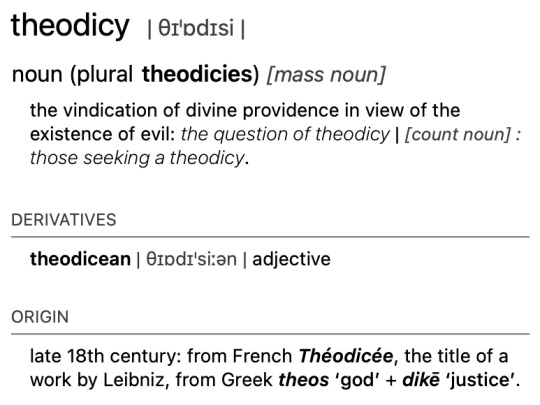
In that film, Allen no longer frets about the dark injustice of the world; he sees it as, in effect, God’s will to enable a man with big dreams and desires to realize them unimpeded by the petty mechanisms of human justice.
youtube
The quandary that Allen’s own troubled situation poses for his work—for his moralistic art—is dramatized in the 2002 comedy “Hollywood Ending,” in which Allen plays a director whose career is threatened when, the night before shooting a film that’s supposed to be his much-needed comeback, he’s suddenly struck blind (psychosomatically, as it turns out).
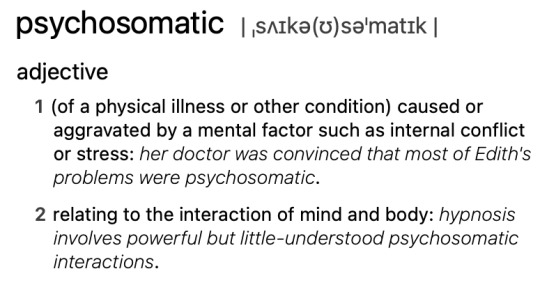
What he does is pretend to direct while blind—an impairment that’s both the spark for some of Allen’s greatest physical comedy and a keen tragicomic metaphor for the desire not to see, not to bear witness, and for the artistic pretense that results.
That febrile, antic movie mines another of Allen’s longtime motifs: the plot point of hiding evidence.
youtube
In “Scoop,” from 2006, one of his liveliest latter-day comedies, only the supernatural intervention of a dead investigative journalist brings crucial evidence to light.
There, a man has murdered a woman who, he says, was blackmailing him; when Allen’s character, a magician, joins the investigation, he, too, gets killed.
In short, the movie’s subject is the danger of opening one’s mouth and not keeping omertà.

The big reveal of “Blue Jasmine,” from 2013, is that a middle-aged woman—whose husband was about to leave her for a nineteen-year-old—denounced him to the F.B.I. for financial chicanery.
youtube
In “Irrational Man,” from 2015, the protagonist murders a judge who ruled, he thinks, unjustly in a family-court case, and nearly gets away with it—not hesitating to bump off someone he suspects of planning to turn him in.
One of Allen’s strongest films, the ink-black tragedy “Cassandra’s Dream,” from 2008, centers on a rich businessman’s attempt to kill a business partner who is preparing to testify against him.
youtube
In “Wonder Wheel,” from 2017, a woman who informs against her mobster husband spends the rest of her life in fear and on the run.
The crux of “Coup de Chance” is what Camille plans to do with the information that she gleans.
But what tips her off in the first place to the possibility of Jean’s foul play isn’t physical evidence but a bit of gossip.
Jean, a decade or two older than Fanny, is rich, powerful, and well connected—he’s a financier of a murky sort who tells Fanny only, “I help the rich get richer.”
But his mysteries go deeper.
Years ago, Jean’s business partner vanished without a trace; Jean profited greatly as a result.
At the time, Jean came under suspicion but he was never officially implicated; now he dismisses those accusations as “a few weeks of gossip,” and calls his accusers “paranoid.”
Yet in his social circles there are whispers that Jean indeed had a hand in the disappearance.
One woman says, “Thank God for gossip. Without it we’d be stuck with real facts.”
But, belatedly getting wind of the rumors, Camille notes their foreshadowing of Alain’s disappearance, and her D.I.Y. snooping generates both suspense and comedy.
The film’s skitlike-ness is emphasized in its form, with its many single-take scenes and long takes, which in effect treat the settings like stages and the actors like theatre actors.
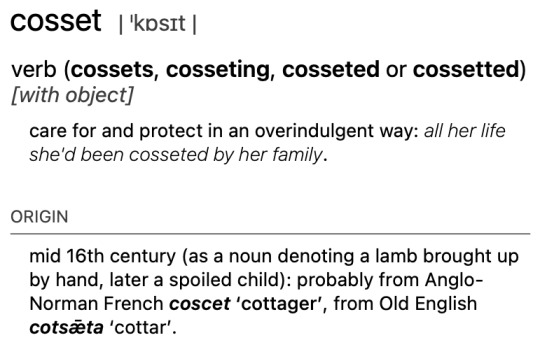
Allen clearly loves Paris—at least the cosseted parts, and he seems unable to see any other kind.
Even Alain’s relative bohemia of a furnished sublet is absurdly comfortable; if Jean’s circle of bankers and politicians reeks of money, Alain’s artistic one is perfumed by it.
The characters are stereotypes living their lives stereotypically; there’s no verve to the filmmaking.
Moreover, Allen doesn’t speak French, and it shows in the actors’ performances, which, for the most part, come off as undirected—skilled, of course, but flailing in a void.

Yet the movie, aesthetically as lumpy as a latke, nonetheless has a weird and lurid vigor that comes from an altogether different source: Allen’s pleasure in his own imagination—his delight in inventing the plot.
Though the movie’s actual protagonist is Fanny, it’s Jean who gets the bulk of Allen’s attention—and Camille who gets its finest role.
To put perhaps too fine a point on it, the mother-in-law in “Coup de Chance” is a stand-in for Mia Farrow, Allen’s current mother-in-law and his former partner, whose accusations, more than thirty years ago, had led to investigations of Allen.
youtube
Yet, as indicated in the title of the revelatory four-part documentary “Allen v. Farrow,” from 2021—which refers to the custody suit that Allen brought against Mia Farrow after Dylan’s accusations were disclosed—the focal point of Allen’s defense, and of his public hostility, has always been his ex-partner.
The vigor of Allen’s characterization of Camille, and of Lemercier’s performance, comes from the fact that “Coup de Chance” is essentially another of Allen’s Mia Farrow movies.
The character has the impulsive energy displayed by Farrow in “Broadway Danny Rose,” “Hannah and Her Sisters,” and the erstwhile couple’s other films together.
Allen’s films have always been sketchlike, but when he was younger they nonetheless seemed ampler.
They were filled with first-person and nearly present-tense experience and a nuanced view of his own milieu, which was both at the center of the New York cultural-social set and a myth being made in real time.

He was the nebbish hero, a man about town who floated above it, in tune with his carefully curated setting, and yet, with his noli-me-tangere chill, he also seemed somehow unreal.
Much of the tension in his better films comes from a certain air of theatricality; it’s also why his more sombre-toned movies were rarely satisfying—he couldn’t keep his face quite straight enough.
But his films’ sketchlike quality allows his voice to come through, directly, on the soundtrack, in action, even in direct address to the camera.
The fiction was a flimsy dramatic framework for his voice, which, in his recent movies, has become strained, vain, confined as if to an official self-promotional, self-justifying role.
“A Rainy Day in New York” is Allen at his most perfunctory—yet also at his most enraged.
Chalamet plays a trust-fund Bartleby, a chirpily discontented college student with the unlikely name of Gatsby Welles, whose girlfriend (Fanning) is sent by the school paper to interview a big-time middle-aged director (Schreiber).
In short order, the director hits on her, a screenwriter (Jude Law) hits on her, and a heartthrob star (Diego Luna) hits on her.
Allen’s dramatic assertions about the lusts of movie men for a nubile young woman are matched by his contemptuous depiction of her as a ditz out of her depth, especially as compared to the soulful rebel Gatsby, who throws her over for a younger girl (Gomez).
(Along the way, Allen also jabs at journalists as unprincipled gossipmongers.)
Above all, “A Rainy Day in New York” is a story about every middle-aged Hollywood man who pursues a twenty-one-year-old woman, which is to say, it’s Allen’s own version, or inversion, or perversion, of the phrase “me too” as a form of whataboutism: yes, he has had relationships with much younger women (including Soon-Yi Previn, whom he married), and, yes, his films are rife with May-December relationships, as in “Manhattan” and “Husbands and Wives,” but whoever would criticize him should also cast stones at the whole movie business.
And the world did, in effect, with the #MeToo movement.
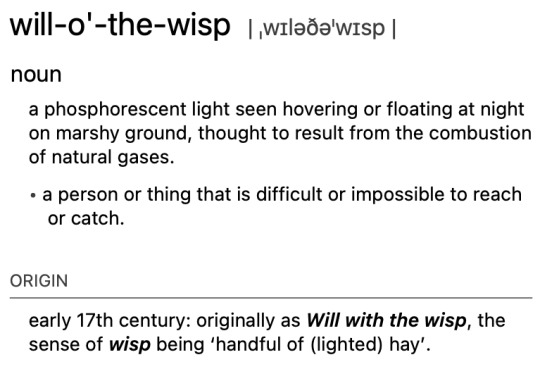
“Rifkin’s Festival,” shot in 2019, is the story of an old man—a former film professor, played by Wallace Shawn, who sought the will-o’-the-wisp of art and culture and ended up a dried-out and lonely husk.
The drama is sodden and mechanical, but what gives the movie a glimmer of life is Rifkin’s fantasy world: he imagines himself into comical parodies of scenes from classic movies that he loves, including “Jules and Jim,” “Breathless,” “Persona,” “The Exterminating Angel,” and “Citizen Kane.”
In the light of Rifkin’s diffident anguish, the heartfelt whimsy of these scenes plays like Allen’s own nostalgic reminiscence of his early, funny stuff—and of the way that his life used to be.
In “Coup de Chance,” Allen borrows from another classic, John Ford’s Western “The Man Who Shot Liberty Valance,” the story of a miscreant who has long evaded the law but eventually gets his extrajudicial, extramoral comeuppance.
The ending of “Coup de Chance” offers a tragicomic surprise that echoes the key plot point—the shootout—of Ford’s film.
Allen has suggested that “Coup de Chance,” his fiftieth feature, may be his last; if so, he goes out with a self-excoriating bang.
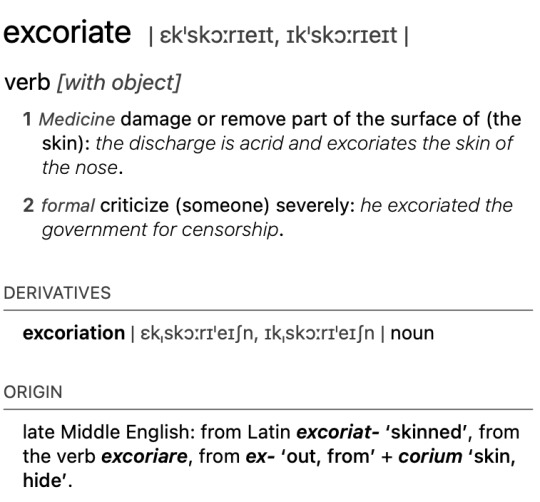
youtube
0 notes
Text
Things I Like (films) • A Canterbury Tale • Micheal Powell + Emeric Pressburger • 1944

The British Film Institute (BFI) is having a Powell and Pressburger moment. This comprises a series of films at the South Bank, an exhibition and various events under the title, Cinema Unbound.
Powell and Pressburger had a unique cinematic language that was all their own… they were willing to break and reinvent any ‘rule’ that movies had
Greta Gerwig
Hailed as quintessentially British, Powell and Pressburger’s often-controversial films emerged from the creative energy sparked when Man of Kent Michael Powell combined in cross-border collaboration with Jewish Hungarian emigré Emeric Pressburger. Their Archers production compny was made up of creatives from across Europe
The BFI is providing the most extensive celebration of their work ever undertaken. It includes new BFI restorations, remasters of Powell’s early films, titles Pressburger wrote for others and a major exhibition drawn from the collections of the BFI National Archive. The programme is presented across the UK with the BFI Film Audience Network and on BFI Player.
We're lucky, in Folkestone, to be hard-wired into the celebration. That's just as it should-be, because Michael Powell grew up in Kent. One of the delights of rural Kent, even today, is to find oneself unexpectedly in a Michael Powell landscape.
That's especially the case in relation to A Canterbury Tale (1944), Powell and Pressburger's most local film. That's showing at our local cinema, the Silver Screen.
The story concerns three young people: British Army Sergeant Peter Gibbs, U.S. Army Sergeant Bob Johnson and a Land Girl, Miss Alison Smith. The group arrive at the railway station in the fictitious small Kent town of Chillingbourne, near Canterbury, late on a Friday night, in 1943.
As they leave the station together Alison is attacked by an assailant in uniform, who pours glue on her hair before escaping. It transpires that this has happened to other women, and the mystery attacker is known locally as the glue man. Alison asks Bob if he will spend the weekend in Chillingbourne to help her solve the mystery. The three decide to investigate the attack, enlisting the help of the locals, including several small boys who play large-scale war games.
The three use their detective skills to identify the culprit as a local magistrate, Thomas Colpeper, a gentleman farmer and pillar of the community. On their train journey to Canterbury on the Monday morning, Colpeper joins the three in their compartment. They confront him with their suspicions, which he does not deny, and they discover that his motive is to prevent the soldiers from being distracted from his lectures by female company, as well as to help keep the local women faithful to their absent British boyfriends.
On arriving in the city of Canterbury, devastated by wartime bombing, all three young people receive blessings of their own. Peter decides not to report Colpeper to the Canterbury police, as he had planned to do.
Much of the film's visual style is a mixture of British realism and Irwin Hillier's Expressionist style that is harnessed through a neo-romantic sense of the English landscape. The concept that the past always haunts the present in the English landscape was already part of English literary culture.
Within the context of WW2 and its aftermath, Powell and Pressburger chose to explore the expressionist potential of a cinema of feeling. In Catnterbury Tale, the landscape, its history and the community are all identified as having a transcendent potential upon the experience of the individual. This is especially so in relation to the idea of the pilgrim and the miracles and penance (joy and suffering) along the way.
Many of the themes in Canterbury tale align with those of George Orwell's famous essay, The Lion and the Unicorn (1941). The idea of war, progress and change combining to produce feelings of anxiety and ambivalence. This tension between tradition and progress is exemplified in the personality of Colpeper, the magistrate and antiquary...
Powell is a film-maker who is better known, these days, in the USA and in France, (where cinema is taken more seriously as a 20C cultural form). Martin Scorsese is a big fan. The famous opening sequence in Stanley Kubrick's, 2001 - a Space Odyssey (1968) repurposes Powell's opening for Canterbury Tale where falcon and Spitfire merge.

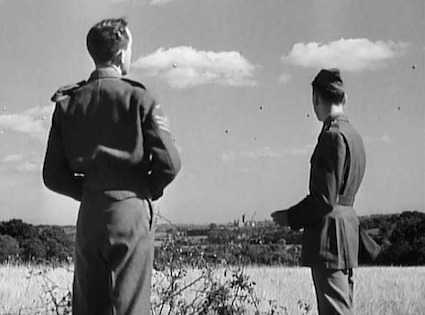


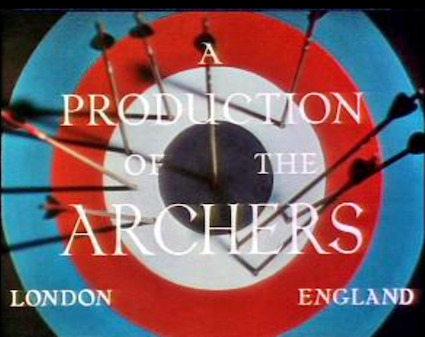
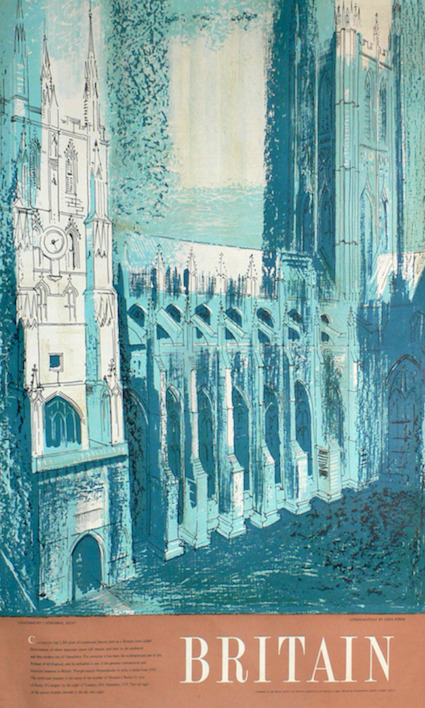
Here is a poster, from about 1955, by the artist, John Piper. It shows the exterior of Canterbury cathedral, where Powell and Pressburger's film ends...
0 notes
Text
thots on little women (2019)
or, y’all are giving greta gerwig too much credit (part two)
The character arc that was changed the least from the source material, but that still manages to personally offend me the most, is, of course, Amy’s. It’s no secret that Gerwig is an Amy stan, or at least more of a fan of her than most people. I am as well, which is why I am so disappointed with this particular arc.
It’s honestly more disappointing because Gerwig handled parts of Amy’s arc extremely well, namely, her relationship with Laurie. Gerwig did an excellent job of making Amy and Laurie’s relationship feel less like a consolation prize since Laurie did not end up marrying Jo and more like a fully realized and reciprocal relationship, arguably more so than Alcott herself. HOWEVER, and this is a big however, the Amy/Laurie relationship is not the only important part of Amy’s characterization in the novel, and unfortunately, it is in the movie.
Amy starts out the novel as a selfish twelve year old girl, which is evidenced in no other but the infamous book-burning scene. However, throughout the novel, she grows out of that selfishness and into a more selfless, self aware woman. (Again, whatever your thoughts on “learning to be selfless” as a trope in women’s narratives are not necessarily relevant.)
For example, in the first half of the novel, one of Amy’s most notable chapters deals with pickled limes. For anyone who only watched the movie or doesn’t quite remember the book, a short summary:
Amy, the only one of the March girls who attends school, is upset because the girls in her school have been trading pickled limes. The limes are seen as a status symbol, which can be traded for little trinkets, bestowed upon favorites, or indulged in in front of your enemies. The pickled limes trend has become so popular that the teacher, Mr. Davis, has banned them in the classroom, which has done nothing to curb their popularity. Amy, who is relatively popular among her classmates regardless of her relatively lower class status, has been gifted several limes but had no way to return them, is greatly “in debt.” When Meg gives Amy enough money to buy a whopping twenty-five pickled limes, she flaunts and preens her way around the classroom until a girl she snubbed tattles to the teacher and gets all twenty five limes taken away.
This scene is a good example of the beginning of Amy’s arc of overcoming her one major personality flaw. It shows how her selfish nature is really just immature behavior, and as she ages, she matures out of that childishness. Another good example of this arc happens when Beth contracts scarlet fever. At first, she complains, saying that she would rather contract the deadly disease than to go to her Aunt’s house, but as she remains there, we see her mature and even grow fond of Aunt March. Her personal arc independent of Laurie was a big part of Amy’s plotline, and it was unfortunately left out of the movie.
The most glaring example of this is the omission of one of the most important scenes of Amy’s arc in the book: the occurrences at the fair. Again, indulge me in a brief summary for those who won’t know exactly what I am talking about:
The mother of one of Amy’s friends, Mrs. Chester, holds a three day fair for all of the girls in Amy’s social circle. As Amy is the most talented and most well-liked of the girls, she has the best table at the fair, at the very front, where she is to sell her beautiful artistic creations. However, her friend, May Chester, is jealous of her, and seeing this, Ms. Chester takes the table from Amy and gives it to May, relegating Amy to the back corner to sell flowers. At first, Amy is incredibly upset, and takes all of her art back to the table with her, however, after talking with her family, who are properly indignant on her behalf, she resolves to be gracious and humble and gives her own drawings to May to sell. Seeing this, Jo tells Laurie to take all of his handsome, college-aged bachelor friends to Amy’s table, which he does, and they spend the entire next day of the fair flirting with her and buying every one of the flowers from Amy. On the final day of the fair Amy, who has entirely overcome her own selfish wishes, tells Laurie and his friends to go do the same to May. This string of selfless acts is seen by Aunt March and Aunt Carrol (who in the novel has half of Aunt March’s role in the movie) and is the premier reason behind Aunt Carrol deciding to take Amy to Europe instead of Jo.
Leaving this scene out of Amy’s narrative in the movie is, I think, unforgivable. The inclusion of this scene would have exponentially improved Amy’s arc, for three major reasons:
This scene is the culmination of Amy’s “selfish to selfless arc”. Again, regardless of your opinions on whether this is a good lesson for her to learn, it is an arc, and as the movie stands currently, she simply doesn’t have one. The occurrences at the fair show her finally growing out of her childhood vices into the mature woman we see in Europe, and to exclude this scene does her a disservice.
Prior to her trip to Europe, this is one of the only scenes in the novel where Laurie and Amy have any sort of interaction. If Gerwig wanted to more fully develop the Amy/Laurie romance I cannot imagine the logic behind leaving this scene out. It would make the romance seem less rushed, which has been a common critique of their love story since the book came out, and would even provide context for Amy’s “Not when I have spent my entire life loving you” line which Gerwig added to the narrative.
As previously mentioned, this scene is one of the main reasons behind Amy being allowed to travel to Europe with Aunt March/Aunt Carrol. Within the movie, this reasoning is less obvious, especially given the fact that Aunt March had already told Jo she would take her to Europe, and the inclusion of this scene would have made the trip feel more earned for Amy.
Greta Gerwig has made no secret of the fact that she both a feminist and a fan of Amy March. I am both of those things as well, which is why I cannot understand her logic behind robbing Amy of a complete arc. In the movie, the most important parts of Amy’s arc are all tied to a man. Even that arc is not as fully developed as it could be. Gerwig did a magnificent job with Amy’s overall likability, but that is not the same thing as writing a fully realized arc for her.
But even though Amy is my personal favorite character, and I am more personally invested in her arc, Gerwig’s mishandling of Amy is not the most egregious sin committed in this movie. That honor is reserved for Jo’s arc.
Part Two: Jo
A Buzzfeed article entitled “The New ‘Little Women’ Makes Space for Jo’s Queerness” claims that “Gerwig’s adaptation, without being too explicit about it, does gorgeous justice to that [queer] reading.” An Advocate magazine article called “Greta Gerwig Brings Out the Inherent Queerness of Little Women” makes the bold claim that the 2019 Little Women “offers the queerest and most feminist reading yet.” An even bolder declaration by them magazine says that “The New Little Women Basically Proves Jo is Queer”. Gerwig has been lauded both by critics and by her own actors for creating an explicitly queer narrative for Jo March.
As previously mentioned, I do not generally read Alcott’s Jo as queer. However, upon my first encounter with this headcanon, I could immediately see why so many people did see her this way, and why this interpretation is so beloved. Jo has a lot of non-stereotypically straight traits that have made her something of a queer icon in many progressive literary circles. Both the way she bemoans being “born a woman” and her intense desire not to marry spoke to a lot of queer or non-cis readers, many of whom were excited to see her portrayed this way on the silver screen. And though I am not particularly attached to this headcanon, as a bi woman, I too was excited to see her that way.
And then… I didn’t.
Look, I hate to burst y’alls bubble, but there is literally not a single second in the movie where Jo is anything resembling queer. At best, she could be read as aromantic/asexual, but that’s about it. (Note: Obviously I don’t intend to imply that being aro/ace is somehow “lesser than” being L G B or T, but obviously the form of queerness people were expecting is one in which Jo is explicitly attracted to women.) There are no subtle looks in the direction of another woman, no scenes in which Jo expresses any negative emotion towards the idea of marrying a man specifically. She doesn’t even have a single female friend outside of her sisters.
One of the reasons the 2019 Jo (and by extension, Laurie), have been hailed as queer icons is their relative gender fluidity. Jo and Laurie exchange clothes throughout the movie, which was intended to display their “gender fluidity”. I knew about this particular facet of the movie before going to watch it in theaters, so I was looking for these occasions specifically, and I still couldn’t tell that they were supposed to be gender neutral. Maybe that’s just me, because I don’t know a lot about civil war era clothing, but whatever.
The other reason that Jo is considered queer in the movie is her rejection of traditional Civil War era femininity. She doesn’t want to get married, and she has no interest in “girly” things like dresses or parties. But neither of those things are specifically queer. Being “not like other girls” as your premier personality trait is not queer, it’s just garden-variety misogyny.
Even Jo’s big scene where she laments her competing desire to stay unmarried and her intense loneliness, has nothing marking it as explicitly queer. “I’m so sick of people saying that love is just all a woman is fit for,” she bursts out. Love. Not love for a man. Not even marriage. She is decrying the entire concept of love.
“But Rae,” I can hear you asking, “what about the ending, where it’s implied she doesn’t marry Professor Bhaer and gets to publish her novel?” To that, there are two important things to consider. One: the ending is intentionally portrayed as optional. Even though it is heavily implied that Jo did not go off and get heterosexual married at the end, it is possible to ignore that ending or do some light mental gymnastics to make the two versions of Jo’s ending coincide. And I’m not just saying this as a worst-case-scenario, I actually have seen people do this, in fandom and my own life.
Secondly, even if you take the ending as completely factual, we still have all the scenes involving Bhaer previous to the ending to give some hint of Jo’s sexuality. We never see her even look at another woman, but she flirts with Bhaer and blushes when he looks at her and asks for his opinion on her work. Even ignoring the straight-as-default setting of most casual viewers, canonically, Jo has only ever shown interest in men. One man specifically, but still.
“But she could still be bi/pansexual, or suffering from compulsory heterosexuality,” I hear. And this is basically the crux of my argument. In fandom, you don’t have to assume straight as the default, and it's probably better not to. Bi/pan headcanons for “straight” characters are a good, positive way of adding to a fandom culture. However, when it comes to canonical representation, the opposite is true. Representation is not representation if it is not explicit.
I’m not saying that queer viewers cannot feel represented by Jo in this movie. I personally feel represented by Hermoine Granger as a black woman, due to her “wild, bushy hair” and her penchant for social activism (SPEW). However, I cannot give JK Rowling credit for that representation because she had nothing to do with it. She did not do any of the hard work to actually make Hermoine a black woman. In the same way, we cannot credit Gerwig with adding queer representation to Little Women, because she didn’t.
Conclusion: The Response
I know reading this essay probably makes me seem like a Greta Gerwig-hater or like I disliked the movie. Both of those things are untrue. As previously mentioned, I loved the movie. I’ve watched the Amy/Laurie scenes of the movie like a hundred times already. I also don’t hate Greta Gerwig. This is the only movie of hers that I’ve seen, but I heard all about Lady Bird and its popularity, and I think the directing of Little Women was excellent. The fact that Greta Gerwig is a very talented filmmaker is not necessarily an arguable point.
I don’t believe that Gerwig had to fully develop any of the sisters. I don’t even think that Gerwig is required to add queer representation (or racial diversity for that matter) to her movies. Greta Gerwig decided to adapt an extremely white, cishet Civil War era book into an extremely white, cishet Civil War era movie. Hot take time: she is entirely in her rights to do that.
BUT. The thing that bugs me the most about the movie, and is basically the impetus behind me writing this essay, is the response to the movie. For whatever reason, Gerwig’s Little Women adaptation has been deemed more “woke” than it actually is. Little Women (2019) has been lauded for its strong female presence (even though there are only white, cis, straight women), for it’s development of the other, non-Jo sisters (even though it doesn’t), and for giving its lead space to be queer (even though she isn’t).
Greta Gerwig made an excellent film, but she did not do anything that has never been done before. I liked the movie, but I’m not about to go campaign for Greta Gerwig or the movie to win an Oscar. In general, we need to be less willing to acclaim those who do the bare minimum.
Again, I’m not good at writing conclusions. At a certain point I’m going to just start repeating myself, so I’m going to go ahead and cut myself off now. Again, if anybody has any opinions on this, agree or disagree, please come talk to me about it! I’d love to hear any other thoughts.
#little women#little women (2019)#raetalks#meta#meg march#jo march#beth march#amy march#timothee chalamet#emma watson#saorise ronan#eliza scanlen#florence pugh#greta gerwig
47 notes
·
View notes
Photo

Here is a list of some of our favorite films we saw 2019. We encourage you to watch them all and continue seeking out cinema that inspires and motivates you to create.
1. A Great Lamp (d. Saad Qureshi)
2. Portrait of a Lady on Fire (d. Céline Sciamma)
3. The Mountain (d. Rick Alverson)
4. The Souvenir (d. Joanna Hogg)
5. Queen of Lapa (d. Carolina Monnerat & Theodore Collatos)
6. The Irishman (d. Martin Scorsese)
7. A Hidden Life (d. Terrence Malick)
8. Black Mother (d. Khalik Allah)
9. Atlantics (d. Mati Diop)
10. Varda by Agnes (d. Agnès Varda)
11. Long Day’s Journey Into Night (d. Bi Gan)
12. Parasite (d. Bong Joon-ho)
13. Uncut Gems (d. Safdie Brothers)
14. Cat Sticks (d. Ronny Sen)
15. Knives and Skin Film (d. Jennifer Reeder)
16. This Magnificent Cake! (d. Marc and Emma)
17. The Lighthouse (d. Robert Eggers)
18. Vitalina Varela (d. Pedro Costa)
19. First Cow (d. Kelly Reichardt)
20. August at Akiko's (d. Christopher Makoto Yogi)
21. The Last Black Man in San Francisco (d. Joe Talbot)
22. Tux & Fanny (d. Albert Birney)
23. Our Time (d. Carlos Reygadas)
24. High Life (d. Claire Denis)
25. The Ghost Who Walks (d. Cody Stokes)
26. The Forgotten Colours of Dreams (d. Johnny Clyde)
27. Desolation Center (d. Stuart Swezey)
28. The Wild Pear Tree (d. Nuri Bilge Ceylan)
29. Monos (d. Alejandro Landes)
30. RAY & LIZ (d. Richard Billingham)
31. Little Women Movie (d. Greta Gerwig)
32. The Farewell (d. Lulu Wang)
33. Dolemite is My Name (d. Craig Brewer)
34. Overwhelm the Sky (d. Daniel Kremer)
35. Ham on Rye (d. Tyler Taormina)
36. Lil Buck: Real Swan (d. Louis Wallecan)
37. Amazing Grace Movie (d. Sydney Pollack & Alan Elliott)
38. Buñuel in the Labyrinth of Turtles (d. Salvador Simó Busom)
39. Synonyms (d. Nadav Lapid)
40. Apollo 11 (d. Todd Douglas Miller)
Honorable Mentions: Pain and Glory, Hail Satan?, Climax, Birds of Passage, Homecoming, La Flor, In Reality, The Man Who Killed Don Quixote, The Nightingale, Two Plains and a Fancy, Once Upon a Time… in Hollywood, Marriage Story, In Fabric, The Great Buster, Invader Zim: Enter the Florpus, Uranium Derby, I Lost My Body
#non films#best of 2019#cinema#a great lamp#portrait of a lady on fire#the mountain#the souvenir#queen of lapa#the irishman#a hidden life#black mother#atlantics#varda by agnes#parasite#long day's journey into night#uncut gems#cat sticks#knives and skin#this magnificent cake#the lighthouse#vitalina varela#first cow#august at akiko's#last black man in san francisco#tux and fanny#our time#high life#the ghost who walks#forgotten colours of dreams#desolation center
15 notes
·
View notes
Text
clarkenting replied to your post “you guys. I am watching little women bc it came so highly recommended...”
Same and also it's ironic af that Gerwig is hailed as a feminist icon and has all her Hollywood it girl friends come out to bat for her but none of them including her went hard for Ava Duvernay the year prior and lol how she still worked with Woody Allen and didn't say she "regretted" it until her best director nom for Lady bird was locked down and lol how her partner Noah Baumbach literally wrote a marriage story romanticing him cheating on his ex wife with her but
“you guys. I am watching little women bc it came so highly recommended...”
Ya know whatever. The narrative surrounding her reeeeeks of white feminist bullshit and I am uncomfortable with literally all of it.
I love you. You get me.
Greta Gerwig is what Lena D*nham hoped she would be, I totally agree that she screams of White Feminism to me. I’m just so over stories about straight white people. I tweeted this earlier, but the whole time I watched the movie I kept coming back to the question of: why do we need this movie AGAIN, now? What does it really have to say that hasn’t already been said in the last 100 years of its existence? When we have had so many more powerful and more interesting movies this year I just don’t get the outrage on behalf of her in particular.
#clarkenting#don't get me STARTED on that mess marriage story. you couldn't PAY me to watch that shit#not even for my love Laura Dern
2 notes
·
View notes
Photo
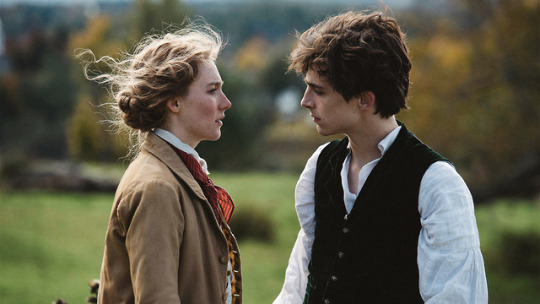
Ranking Little Women.
“This is a film not about a single woman’s quest for identity or independence, but about the infinite power of a woman’s community.”
Letterboxd is humming with Little Women Cinematic Universe energy, particularly since the trailer for Greta Gerwig’s new version, with its cast pulled straight from the Letterboxd Year in Review, dropped.
“I have a guttural five star type of feeling after the trailer,” writes Leia. “Bi culture is thirst-watching this for Timothée Chalamet and Florence Pugh,” Raph enthuses.
Yeah, we see you watching and re-watching all the previous film adaptations of Louisa May Alcott’s landmark 1868 novel that you can fix your eyeballs on. We’re not ones to doze by the fire; we like adventures. So let us take you on a romp through past Little Women screen adaptations, in which we rank the productions based on our community’s stantastic response to each.

From left: Milton, Daisy & Ruby.
Little Women (1917)
Directed by Alexander Butler
Though the March family lived in the town of Concord, Massachusetts, it was the British who got to the beloved American book first, with this silent film adaptation.
Starring Ruby Miller as Jo March and musical-comedy star Daisy Burrell as Amy March, the film is considered lost, so nobody on Letterboxd will ever be able to confirm how the prolific English actor Milton Rosmer stacked up as rich-boy-next-door Theodore ‘Laurie’ Laurence.
Letterboxd ranking: #7.
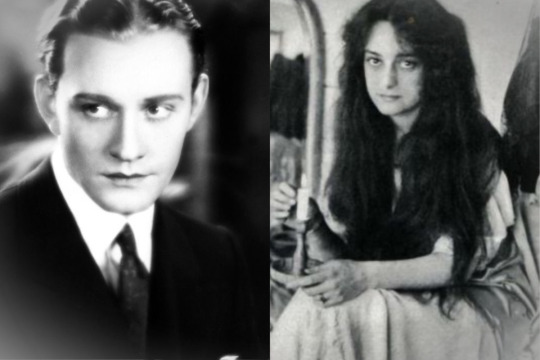
Conrad Nagel & Dorothy Bernard.
Little Women (1918)
Directed by Harley Knoles, screenplay by Anne Maxwell
Also considered lost is the first American adaptation, by the brilliantly named Harley Knoles, a British director who spent the 1910s working in the US. Matinee idol Conrad Nagel played Laurie.
Letterboxd ranking: #4. Jo March was played by silent film queen Dorothy Bernard, whose father hailed from New Zealand (as does Letterboxd), therefore this version ranks highly even though there are no Letterboxd ratings or reviews to confirm this fact. Instead, check out D.W. Griffiths’ dark, march-across-the-desert film The Female of the Species, in which “only Dorothy Bernard gives a believable performance” according to Michael.
(An aside: Here’s a list of unseen silent films that actually do exist, but that nobody on Letterboxd has yet seen, apparently.)
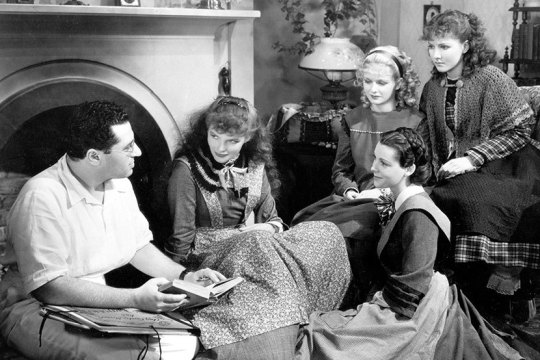
From left: George Cukor directs Katharine Hepburn, Joan Bennett, Frances Dee and Jean Parker in ‘Little Women’ (1933). / Photo courtesy MGM
Little Women (1933)
Directed by George Cukor, screenplay by Sarah Y. Mason and Victor Heerman
Now we’re getting to the meat & potatoes of Little Women standom. Not that it’s a competition, but Katherine Hepburn is the one Saoirse Ronan needs to beat. Hepburn set the screen standard for gutsy portrayals of Jo March, and appropriately so in this first version with sound because let’s be honest, when the world got to hear Jo March speak those lines aloud for the first time, Hepburn’s voice was the perfect choice.
The prolific Cukor was nominated for the best directing Oscar (he eventually won one in 1964 for My Fair Lady), but it was the screenwriters, married couple Mason and Heerman, who won the Academy Award for their script. (Hepburn also won that year, but not for playing Jo March.)
Letterboxd ranking: #3. “A true gem of depression-era cinema,” writes Taj. “Every single scene in the first half of this film is a pure delight.”
“I’d like to personally thank Katharine Hepburn for being absolutely perfect,” writes Skylar. Morgan concurs: “Hepburn plays Jo with a rough physicality, bold confidence, and a gentle sensibility, standing out in a rather unremarkable movie.”

June Allyson and Rossano Brazzi.
Little Women (1949)
Directed by Mervyn LeRoy, screenplay by Sally Benson, Victor Heerman, Sarah Y. Mason, and Andrew Solt
Why re-write a script that’s already perfect? Mervyn LeRoy’s 1949 Technicolor update lifted most of the screenplay and music from Cukor’s version, throwing in an on-trend acting line-up of June Allyson (Jo), Janet Leigh (Meg), Elizabeth Taylor (Amy) and Margaret O’Brien (Beth).
Never mind who played Laurie in this version (okay, okay, it was hunky Rat-Packing socialite Peter Lawford); the real tea here is the American film debut of Bologna-born Italian great Rossano (The Italian Job) Brazzi, as Professor Bhaer.
Letterboxd ranking: #2. “This is the best Little Women, fight me,” DylanDog declares. “I’m so impressed by the fact that they rewrote/restructured/padded out the 1933 screenplay, assembled a nearly pitch-perfect cast, and made such a fantastic Technicolor remake,” Dino reasons. “We actually see way more of the novel’s subversive gender politics play out here, and Jo’s motivations are much more palpable.”
“Although I also really like the 1933 version, the Hepburn film lacks the warmth I do find in the 1949 adaptation,” Annewithe writes. “I feel that this version conveys the true spirit of the book and is as cozy and warm and loving, and it’s in colour!”
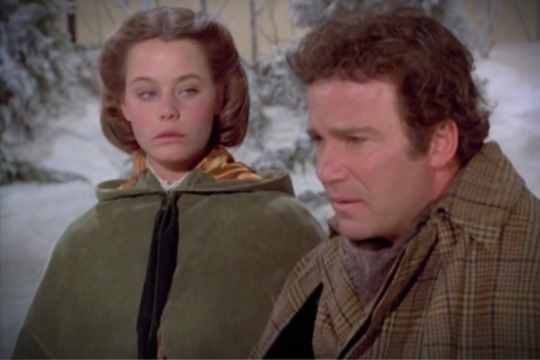
Susan Dey and William Shatner.
Little Women (1978)
Directed by David Lowell Rich, screenplay by Suzanne Clauser
Between 1949 and 1994, all we got was this seventies miniseries adaptation, which flies far under the radar of Letterboxd’s Little Women obsession with only two member reviews.
Susan Dey was a smart choice to play Jo March, given her Partridge Family profile at the time, while Meredith Baxter Birney, who played Meg, went onto huge sitcom fame as Michael J. Fox’s mom in Family Ties. The real curiosity factor here, writes LouReviews, is “the casting of one William Shatner as the Professor, and he’s rather good!”.
Letterboxd ranking: #6. “This story keeps moving me,” is all Sandra had to say, while LouReviews writes “not essential by any means, but if you like the novel, you'll want to see this”.

Winona Ryder and Christian Bale.
Little Women (1994)
Directed by Gillian Armstrong, screenplay by Robin Swicord
It only took 126 years from publication for a woman to get behind the camera of a Little Women film, despite Alcott’s masterpiece long being a prime example of (white privileged) female complexity in storytelling. (Although, it’s fair to note that women have been involved in the scriptwriting for every Little Women film adaptation that we know of.)
Released—as Gerwig’s 2019 update will be—at Christmas, Gillian Armstrong’s version was as star-studded as they come, with 90s it-girl Winona Ryder—fresh off Reality Bites—as Jo March, and Christian Bale as Laurie. Also: Kirsten Dunst, Samantha Mathis and Eric Stoltz, with Susan Sarandon as Marmee.
Letterboxd ranking: #1. Sydney writes: “It’s really tough dealing with the fact that this movie is probably never going to get the respect it deserves.” Well Sydney, we’re happy to make your day. This Little Women is currently the highest-rated on Letterboxd (except for Bale’s facial hair, which is not highly rated by anyone). Thomas Newman’s score is much beloved, and the film is, in Julia’s opinion, “the definitive adaptation!”.
On a recent re-watch, Lauren “was transported back in time to my childhood and for those two hours everything felt simple and safe.” Meanwhile Sally Jane Black, in a thoughtful piece, gets right to the heart of Little Women-love: “This is a film not about a single woman’s quest for identity or independence, but about the infinite power of a woman’s community.”
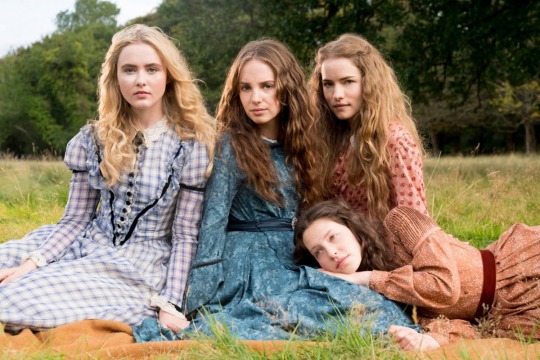
Little Women (2017)
Directed by Vanessa Caswill, screenplay by Heidi Thomas
Not strictly a film, but well worth a mention, this recent three-part BBC adaptation stars Thurman-Hawke offspring (and Once Upon a Time... in Hollywood flower child) Maya Hawke as Jo March. Emily Watson plays the March matriarch, and—Gerwig connection alert!—Kathryn Newton (Lady Bird’s Darlene) is Amy March.
Letterboxd ranking: #5. Alicia is a fan: “Winona will always be my Jo, but Emily Watson absolutely kills it as Marmee! Just love her FACE!!!! Her pain is your pain; her joy is your joy. Oyyy!”
Bethchestnut was slowly convinced: “A very handsome and loving production, even if there were a lot of things that bothered me about it. Doesn’t help that I watch the 90s version every year. Still made me cry twice.”

Little Women (2018)
Directed by Clare Niederpruem, script by Clare Niederpruem and Kristi Shimek
Released to mark the novel’s 150th anniversary of publication, this version wins points for casting Lea Thompson (Howard the Duck, Back to the Future) as Marmee, but loses points for the weird contemporary update, in which the March sisters inexplicably lose the messy complexity of their far more adventurous 19th-century selves.
Letterboxd ranking: #8. “Who decided casting Ryan from High School Musical was a good idea?” asks Sue.
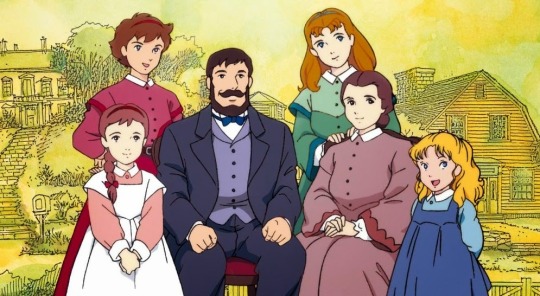
Also worth seeking out: two different Japanese anime adaptations, the 1981 series Little Women’s Four Sisters (若草の四姉妹), and the 1987 series, Tales of Little Women (愛の若草物語), which aired on HBO in 1988 and is notable for writing in a black character. Not worth a mention: this 1970 TV adaptation.
Greta Gerwig’s ‘Little Women’ opens in cinemas this December.
#little women#greta gerwig#timothee chalamet#saoirse ronan#florence pugh#meryl streep#winona ryder#katherine hepburn#letterboxd
12 notes
·
View notes
Text
New from Kevin Wozniak on Kevflix: Best of the 2010’s: Best of the Genres
The 2010’s have officially come to a close, which means it’s time to look back at the very best in movies of the last ten years. Having just broke down my favorite movies and performances from each year (which you can find here) it is now time to culminate everything into more specific lists highlighting the absolute best of the decade. To start, I am going to look back at the each movies from each genre, like animated, horror, and action. I listed by top five favorite movies from each genre, followed by a small reasoning for the top spot. Here are my picks for the best from each genre from the movies of the 2010’s.
BEST ANIMATED MOVIE
TOY STORY 3 (Lee Unkrich, 2010)
INCREDIBLES 2 (Brad Bird, 2018)
KUBO AND THE TWO STRINGS
THE LEGO MOVIE (Phil Lord and Chris Miller)
SPIDER-MAN: INTO THE SPIDER-VERSE
A pair of Pixar sequels landed at the top, but Toy Story 3 has great themes, animation, comedy, and breaks my heart every single time I watch it.
BEST COMIC BOOK MOVIE
THE AVENGERS (Joss Whedon, 2012)
AVENGERS: ENDGAME (Anthony and Joe Russo, 2019)
SCOTT PILGRIM VS THE WORLD (Edgar Wright, 2010)
WONDER WOMAN (Patty Jenkins, 2017)
BLACK PANTHER (Ryan Coogler, 2018)
This was the decade of the MCU and while Endgame is a perfect finale to eleven years of movies, The Avengers really solidified the MCU was a juggernaut and is one of the most important movies of the decade.
BEST FOREIGN LANGUAGE
PARASITE (Bong Joon-Ho, 2019)
SHOPLIFTERS (Hirokazu Koreeda, 2018)
BPM (BEATS PER MINUTE) (Robin Campillo, 2017)
PARADISE (Andrei Konchalovsky, 2016)
COLD WAR (Pawel Pawlikowski, 2018)
*I would like to confess that I have a lot of blind spots in this category, particularly the first half of the decade.*
Though this category has a lot of blindspots, I don’t know if anything would have beaten Bong Joon-Ho’s terrifically twisted look at class disparity.
BEST COMEDY
THE GRAND BUDAPEST HOTEL (Wes Anderson, 2014)
POPSTAR: NEVER STOP NEVER STOPPING (Akiva Schaffer & Jorma Taccone, 2016)
ONCE UPON A TIME… IN HOLLYWOOD (Quentin Tarantino, 2019)
21 JUMP STREET (Phil Lord and Christopher Miller, 2012)
THE NICE GUYS (Shane Black, 2016)
The Grand Budapest Hotel is the perfect combination of master filmmaking, brilliant writing, and non-stop laughs.
BEST ACTION FILM
MISSION: IMPOSSIBLE – FALLOUT (Christopher McQuarrie, 2018)
MAD MAX: FURY ROAD (George Miller, 2015)
MISSION: IMPOSSIBLE – GHOST PROTOCOL (Brad Bird, 2011)
FAST FIVE (Justin Lyn, 2011)
JOHN WICK 2
Mad Max was a game-changer and Fast Five saved a franchise, but this decade belonged to Tom Cruise and the Mission: Impossible franchise, with Fallout coming out on top and being one of the greatest action films ever made.
BEST HORROR MOVIES
HEREDITARY (Ari Aster, 2018)
GET OUT (Jordan Peele, 2017)
THE CONJURING (James Wan, 2013)
THE WITCH (Robert Eggers, 2016)
MIDSOMMAR (Ari Aster, 2019)
Not only is Hereditary a movie that still haunts my dreams to this day, but it is a deeply emotional, heartbreaking family drama.
BEST DOCUMENTARY
LIFE ITSELF (Steve James, 2014)
EXIT THROUGH THE GIFT SHOP (Banksy, 2010)
AMY (Asif Kapadia, 2015)
WON’T YOU BE MY NEIGHBOR?
THREE IDENTICAL STRANGERS
*I would like to note that this is also a category with a lot of blindspots. I’ll be better this decade.*
Roger Ebert is the film critic I looked up to the most and Steve James’ documentary is a beautiful and moving tribute to the legend.
BEST MUSICAL
INSIDE LLEWYN DAVIS (Joel and Ethan Coen, 2013)
POPSTAR: NEVER STOP NEVER STOPPING (Akiva Schaffer & Jorma Taccone, 2016)
LA LA LAND (Damien Chazelle, 2016)
A STAR IS BORN (Bradley Cooper, 2018)
THE MUPPETS (James Bobin, 2011)
The Coen Brothers masterful look at a struggling folk singer features some of the best songs of the decade.
UNDERRATED
(Movies I liked more than everyone else)
CLOUD ATLAS (Lilly and Lana Wachowski, 2012)
POPSTAR: NEVER STOP NEVER STOPPING (Akiva Schaffer & Jorma Taccone, 2016)
GLASS (M. Night Shyamalan, 2019)
SPRING BREAKERS (Harmony Korine, 2013)
HAIL, CAESAR! (Joel and Ethan Coen, 2016)
The Wachowski’s are some of the most disrespected filmmakers working today and Cloud Atlas is as epic and ambitious as movies got in the 2010’s.
OVERRATED
(Movies everyone else liked more than me)
LOGAN (James Mangold, 2017)
THE TREE OF LIFE (Terrence Malick, 2011)
LADY BIRD (Greta Gerwig, 2017)
WAR HORSE (Steven Spielberg, 2011)
DALLAS BUYERS CLUB(Jean-Marc Vallée, 2013)
All of these movies have things that I liked, but everyone gushing about Logan and ranking it as one of the best comic book movies ever is a bit of a reach, especially with a really rough first two acts.
Follow Kevflix on Twitter and Instagram, @kevflix, and on Facebook by searching Kevflix.
The post Best of the 2010’s: Best of the Genres appeared first on Kevflix.
from Kevflix https://ift.tt/35xTINW
via IFTTT
from WordPress https://ift.tt/2R1nc1r
via IFTTT
1 note
·
View note
Note
Hey ! I hope you're doing fine, happy new year ~ I wanted to know what are some popular movies/movies with good reviews that are, in your opinion, "overrated" ? Movies you think are bad (a waste of time !) & movies that weren't that bad, had interesting points, but weren't as good as you expected and you wouldn't watch again ?
You always have the best questions for me regarding films. Happy New Year to you too sorry I’m getting to this question so late. Alright well, the keyword is opinion so to anyone else reading this please bear that in mind. I don’t read nearly as many reviews as I should because I watch movies kind of late anyway. That’s in reference to in-depth reviews, not the basic ones from critics that are promoted during the commercial. I try to attend/watch a movie unbiased from reactions so I don’t become hyperfocused on highlights or sore spots. You didn’t really give me a timeline or specific era to work with. So to give myself a limitation I’ll focus on films made in the past 4 years. Popular films from 2014-2018
Mild Waste of Time — these are basically films you’d leave playing in the background or even get up in the middle in just to do something more interesting.
The Interview dir. Seth Rogen & Evan Goldberg ( it was only really popular because of the controversy but still worth noting ) 2014
Godzilla dir. Garreth Edwards 2014
Transformers: Age of Extinction dir. Michael Bay ( I saw this movie 1 to many times and wondered how I ended back in the theatre. This is more for big transformer fans if anything) 2014
Non-Stop dir. Jaume Collet-Serra 2014
Lucy dir. Luc Besson 2014
‘71 dir. Yann Demange 2014
Edge of Tomorrow dir. Doug Liman 2014
Jupiter Ascending dir. Wachowski Brothers 2015
Knock Knock dir. Eli Roth 2015
The Age of Adaline dir. Lee Toland Krieger 2015
Terminator: Age of Genisys dir. Alan Taylor 2015
10 Cloverfield Lane dir. Dan Trachtenberg 2016
Sausage Party dir. Conrad Vernon, Greg Tiernan 2016
Warcraft dir. Duncan Jones 2016
Gods of Egypt dir Alex Poryas 2016
Now You See Me 2 dir. Jon M. Chu 2016
Baby Driver dir. Edgar Wright 2017
John Wick 2 dir. Chad Stahelski 2017
Upgrade dir. Leigh Whannell 2018
The Meg dir. Jon Turteltaub 2018
Halloween dir. David Gordon Green 2018
Overrated — everything in this category was hyped or talked to a point of misleading viewers or just general inflation due to big names or some element that didn’t quiet measure up.
The Hobbit: the Battle of Five Armies dir. Peter Jackson ( I can rant forever an a day about this bc I’m definitely a LOTR fan and I was just pretty disappointed with this hobbit series ) 2014
Inherent Vice dir. Paul Thomas Anderson 2014
The Man from U.N.C.L.E. dir. Guy Ritchie 2015
Batman v. Superman dir. Zack Snyder 2016
Suicide Squad dir. David Ayer 2016
Star Trek Beyond dir. Justin Lin 2016
The Magnificent Seven dir. Antoine Fuqua 2016
Passengers dir. Morten Tyldum 2016
Fantastic Beasts and Where to Find Them dir. David Yates 2016
Call Me By Your Name dir. Luca Guadagnino 2017
Atomic Blonde dir. David Leitch 2017
Kong: Skull Island dir. Jordan Vogt-Roberts 2017
Ready Player One dir. Steven Spielberg 2018
A Simple Favor dir. Paul Feig 2018
Skyscraper dir. Rawson Marshall Thurber 2018
Solo dir. Ron Howard 2018
Overlooked — everything in this category probably has an underappreciated tone/cast/storyline/cinematographic shots/score/costume/timing/ just eclipsed by other films to be appreciated
The Drop dir. Michaël R. Roskam 2014
Ex-Machina dir. Alex Garland 2014
It Follows dir. David Robert Mitchell 2014
Whiplash dir. Damien Chazelle 2014
Boyhood dir. Richard Linklater 2014
Foxcatcher dir. Bennett Miller 2014
Black Mass dir. Scott Cooper 2015
South Paw dir. Antoine Fuqua 2015
Crimson Peak dir. Guillermo Del Toro 2015
The Lobster dir. Yorgos Lanthimos 2015
The Handmaiden dir. Park Chan Wook 2016
Don’t Breathe dir. Fede Álvarez 2016
Hail, Caesar! dir. The Cohen Brothers 2016
Kubo and the Two Strings dir. Travis Knight 2016
The Big Sick dir. Michael Showalter 2017
Three Billboards Outside Ebbing. Missouri dir. Martin McDonagh 2017
Wonder dir. Stephen Chbosky 2017
Mother! dir. Darren Aronofsky 2017
Molly’s Game dir. Aaron Sorkin 2017
Ladybird dir. Greta Gerwig 2017
Widows dir. Steve McQueen 2018
Game Night dir. John Francis Daley & Jonathan Goldstein 2018
Annihilation dir. Alex Garland 2018
Venom dir. Ruben Fleischer 2018
Isle of Dogs dir. Wes Anderson 2018
Can You Ever Forgive Me? dir. Marielle Heller 2018
Eighth Grade dir. Bo Burnham 2018
*There are films in all these categories that I do still enjoy but I feel they are some aspects catered to my liking specifically. I also left the very big names out because I feel they didn’t fit any of the categories.
3 notes
·
View notes